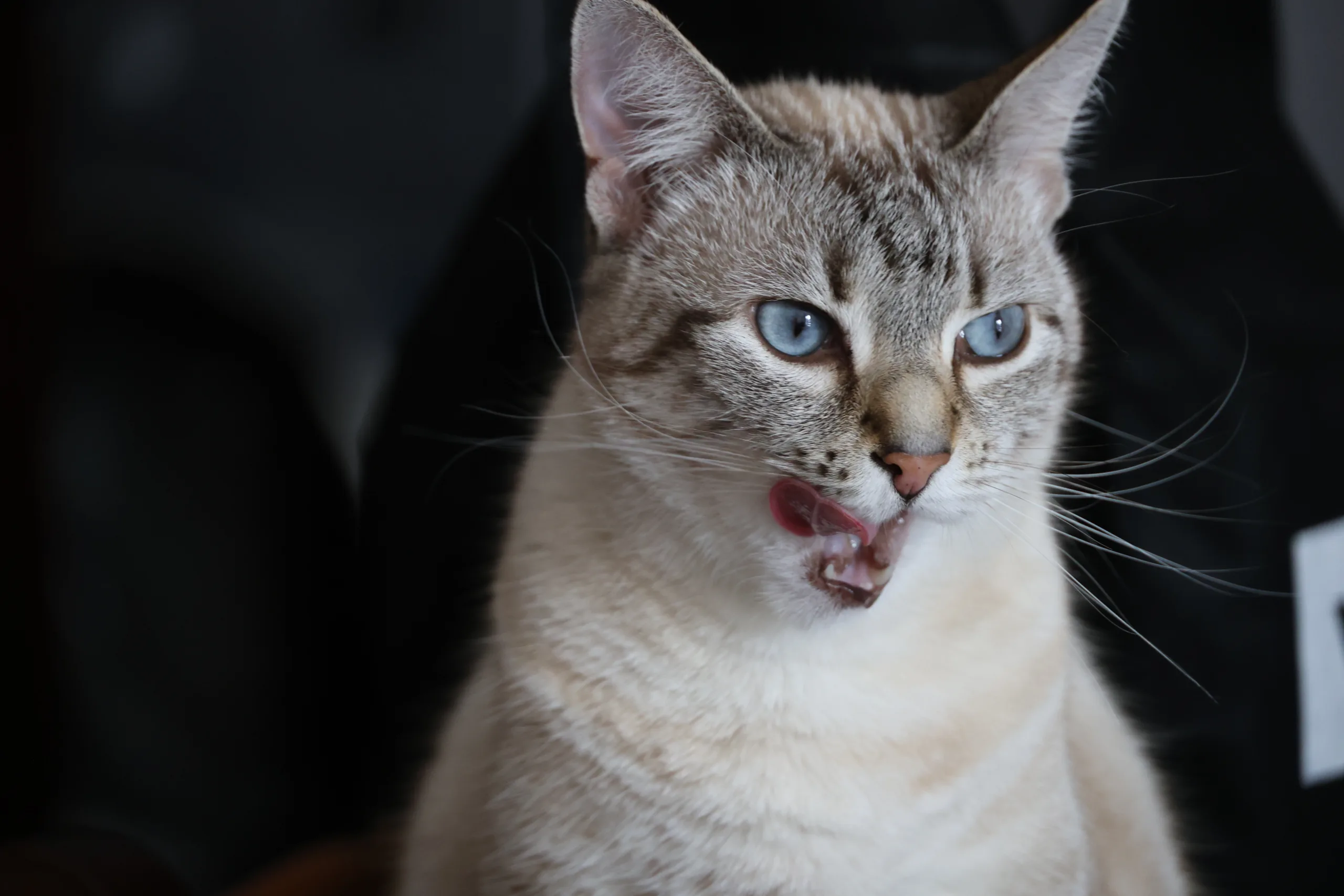Do Cats Throw Up When Stressed? Cats are known for their independent and sometimes enigmatic nature. Yet, just like humans, they can experience stress that manifests in various ways, including vomiting. If you’ve noticed your feline friend throwing up when stressed, it’s not an uncommon occurrence. In this article, we’ll explore the connection between stress and vomiting in cats, signs of stress to watch out for, and methods to help your cat manage stress more effectively.
For more about cats click here
Introduction
Cats may seem aloof, but they are sensitive creatures that can react to changes in their environment, routine, or interactions. Stress is a common trigger for a range of behavioral and physical changes in cats, one of which is vomiting. Understanding why cats vomit when stressed can provide insights into their well-being and help you address their needs more effectively.
Why Do Cats Vomit When Stressed?
**1. Gastrointestinal Response:
Stress can trigger a physiological response in a cat’s gastrointestinal system, leading to an upset stomach and vomiting. This is because the stress response can cause changes in the production of digestive juices and motility.
**2. Hairballs:
Stress can lead to excessive grooming, which in turn can cause more hair to be ingested. Hairballs can accumulate in a cat’s stomach, leading to vomiting.
**3. Nervous Behavior:
Stressful situations can cause nervous behaviors in cats, such as excessive pacing, overeating, or rapid eating. These behaviors can increase the likelihood of vomiting.
**4. Changes in Routine:
Cats are creatures of habit, and sudden changes in their routine, environment, or the introduction of new animals or people can cause stress-induced vomiting.
**5. Anxiety and Hyperarousal:
Stress and anxiety can lead to hyperarousal, causing a cat’s body to go into a state of heightened alertness. This can trigger vomiting as a physical response.
Signs of Stress in a Cat
While vomiting can be a sign of stress, it’s essential to recognize other behavioral and physical indicators:
- Hiding: Cats might seek out hiding spots when stressed.
- Increased Vocalization: Excessive meowing, growling, or howling can be a sign of distress.
- Changes in Appetite: Stress can lead to overeating or loss of appetite.
- Avoidance: Cats might avoid interactions, even with their owners.
- Litter Box Changes: Stress can lead to litter box avoidance or changes in litter box behavior.
When to Be Concerned About Vomiting
While occasional vomiting might be stress-related, frequent or severe vomiting can indicate other underlying issues:
- Gastrointestinal Disorders: Conditions like inflammatory bowel disease, pancreatitis, or gastritis can cause chronic vomiting.
- Infections: Parasitic infections or viral illnesses can lead to vomiting.
- Toxicity: Ingesting toxic substances can cause vomiting.
- Foreign Objects: Ingesting non-food items can lead to vomiting and other symptoms.
FAQs on Do Cats Throw Up When Stressed?
- Why do cats throw up when stressed?Stress can trigger physiological changes in a cat’s gastrointestinal system, leading to upset stomach and vomiting.
- What are signs of stress in a cat?Signs of stress include hiding, increased vocalization, changes in appetite, avoidance behavior, and changes in litter box behavior.
- Why is my cat throwing up but not acting sick?Cats can vomit due to stress or hairballs without appearing visibly ill. However, if vomiting is frequent or accompanied by other symptoms, consult a vet.
- Do cats vomit when lonely?Loneliness can contribute to stress in cats, which in turn might lead to vomiting.
- How can I destress my cat?Providing a safe and enriched environment, using pheromone diffusers, maintaining routines, and offering interactive playtime can help reduce stress.
- How to relax a cat?Creating a calm environment, using calming pheromone products, offering gentle massages, and engaging in interactive play can help relax a stressed cat.
Managing Stress and Vomiting
If you suspect stress is causing your cat’s vomiting, consider the following steps:
**1. Create a Safe Haven:
Provide your cat with a quiet, comfortable space where they can retreat when feeling stressed.
**2. Maintain Routine:
Cats thrive on routine. Stick to consistent feeding times, play sessions, and interactions to provide a sense of security.
**3. Use Pheromone Diffusers:
Feliway diffusers release calming pheromones that can help alleviate stress and anxiety.
**4. Engage in Interactive Play:
Interactive play sessions can help release pent-up energy and provide mental stimulation.
**5. Consult a Veterinarian:
If vomiting persists or is accompanied by other concerning symptoms, consult a veterinarian for a proper diagnosis and treatment plan.
Conclusion
Stress-induced vomiting is a common occurrence in cats, often caused by changes in routine, environment, or interactions. By recognizing signs of stress, understanding the link between stress and vomiting, and implementing stress-reduction techniques, you can provide your cat with a happier and healthier life. If you’re ever uncertain about your cat’s health or behavior, consulting a veterinarian is the best course of action.
Click here for more
